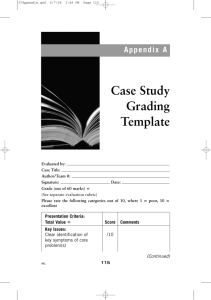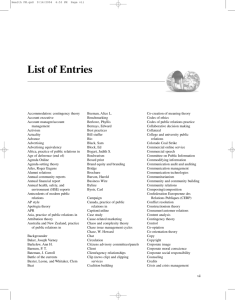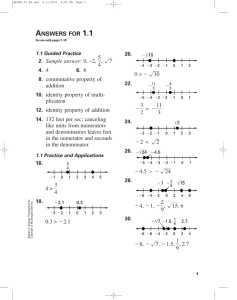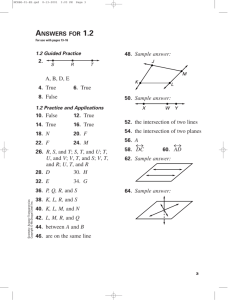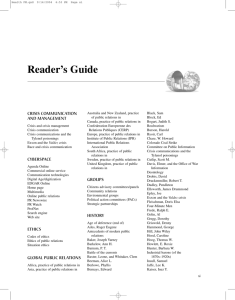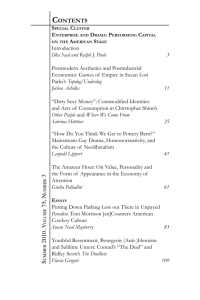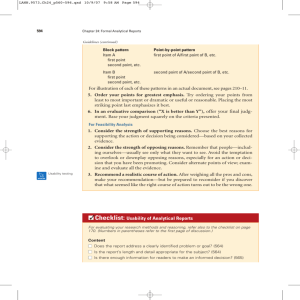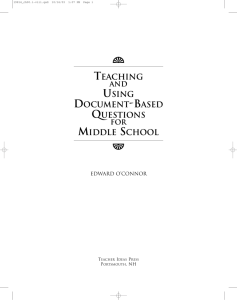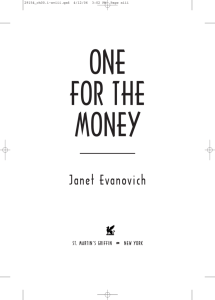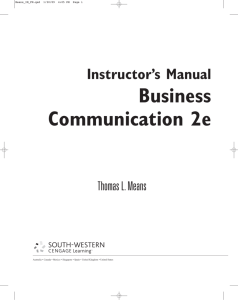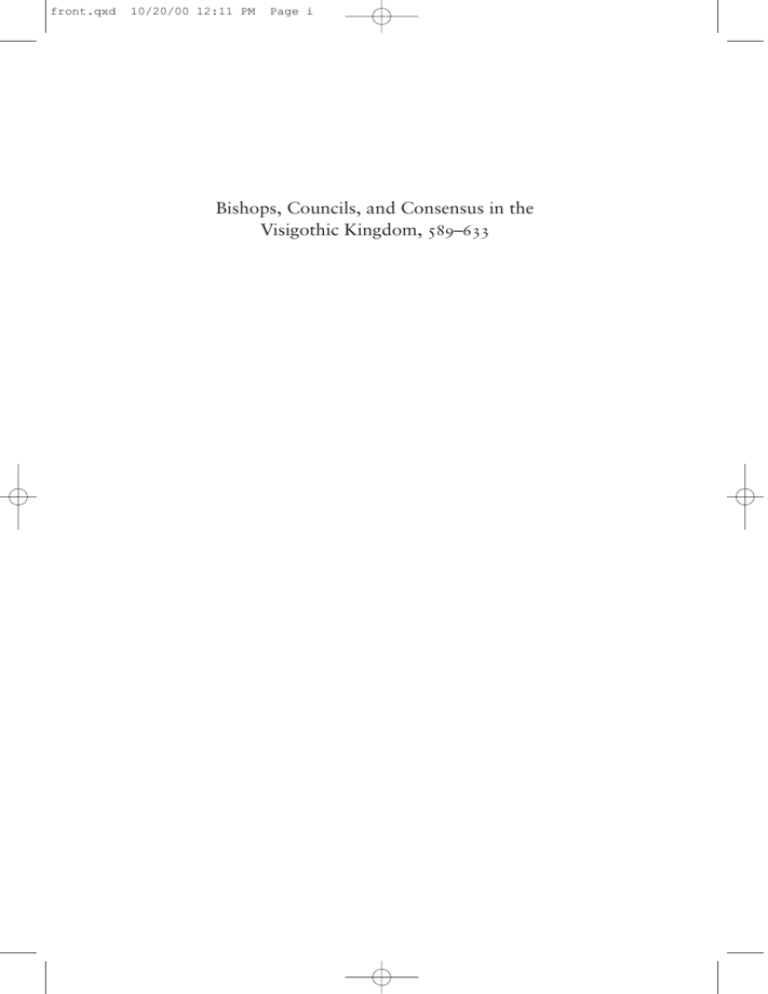
front.qxd
10/20/00 12:11 PM
Page i
Bishops, Councils, and Consensus in the
Visigothic Kingdom, 589–633
front.qxd
10/20/00 12:11 PM
Page ii
front.qxd
10/20/00 12:11 PM
Page iii
Bishops, Councils, and
Consensus in the
Visigothic Kingdom,
589–633
Rachel L. Stocking
Ann Arbor
front.qxd
10/20/00 12:11 PM
Page iv
Copyright © by the University of Michigan 2000
All rights reserved
Published in the United States of America by
The University of Michigan Press
Manufactured in the United States of America
c Printed on acid-free paper
2003
2002 2001
2000
4 3 2 1
No part of this publication may be reproduced,
stored in a retrieval system, or transmitted in any form
or by any means, electronic, mechanical, or otherwise,
without the written permission of the publisher.
A CIP catalog record for this book is available from the British Library.
Library of Congress Cataloging-in-Publication Data
Stocking, Rachel L.
Bishops, councils, and consensus in the Visigothic Kingdom,
589–633 / Rachel L. Stocking.
p.
cm. — (History, languages, and cultures of the
Spanish and Portuguese worlds)
Includes bibliographical references and index.
ISBN 0-472-11133-7 (alk. paper)
1. Spain—Church history. 2. Spain—History—Gothic period,
414–711. 3. Church and state—Spain—History—To 1500.
4. Catholic Church. Council of Toledo (3rd : 589) 5. Catholic
Church. Council of Toledo (4th : 633) 6. Visigoths—
Spain—History. I. Title. II. Series.
BR1024.S79
2000
274.6'02—dc21
99-50877
front.qxd
10/20/00 12:11 PM
Page v
To my parents,
and to the best part of my life,
my son, Evan
front.qxd
10/20/00 12:11 PM
Page vi
front.qxd
10/20/00 12:11 PM
Page vii
Acknowledgments
Over the course of my education and the years it has taken me to produce this
book, I have incurred numerous intellectual, economic, and emotional debts.
The History Department at San Francisco State University offered professors
upon whom I still model my classroom self, including Sally Scully, William
Bonds, and Joseph Illick. I owe special thanks to Frank Kidner, whose attention and advice encouraged me to think of graduate school, Visigothic Studies,
and an academic future as possibilities rather than sources of terror.
The History Department at Stanford University made graduate school
possible, while Gavin Langmuir, Stephen Ferroulo, Amos Funkenstein, and
Susan Treggiari made it meaningful by teaching me to see and “do” history
with intellectual diligence and imagination. Philippe Buc was, and still is, enormously generous with his time, advice, and helpful and inspiring ideas. From
Stanford to the present Sabine MacCormack’s guidance has been essential: in
navigating the alien worlds of both late antiquity and the modern university,
in coping with the obstacles of single motherhood in an unforgiving environment, in researching and writing intelligible, creative, and responsible history,
and in making the transition from student to professor and author. Her help
and advice have been fundamental in conceiving and producing this book.
The History Department at Southern Illinois University at Carbondale
has given me not only a job and travel money but also something quite
unusual: a supportive, stimulating, and congenial working environment. Ted
Weeks, Kay Carr, Robbie Lieberman, Mrinalini Sinha, Jim Allen, and Marji
Morgan have helped me keep my head above water and have put up with a
perhaps unreasonable level of ranting and complaints. Kay Carr also read
parts of my manuscript, talked with me at length about ancient and modern
consensus, and with characteristic generosity donated her time and computer
expertise in making the map for this book. Jim Allen read the manuscript and
gave me invaluable advice on the publishing process. I thank all my History
colleagues for their pedagogical advice and the opportunity to teach and all
my students for the inspiration and stimulation that their education has
brought to my research and writing.
My gratitude also goes to J. N. Hillgarth for his comments on my dissertation, to Perry Pearson at University of Michigan Press for her ready atten-
front.qxd
10/20/00 12:11 PM
viii
Page viii
Acknowledgments
tion, and to the press’s referees for their careful readings and very useful suggestions on the manuscript.
My friends Debbie Lewites, Nina Feldman, and Bill Compton have never
failed to give me the hospitality and conversation that made it imaginable to
move so far away from home. I would never have been in a position to do so
without Nancy Thompson’s companionship and consolation in the world of
early medieval studies as well as her many readings of my work and her help
on translations. Susan Dever taught me Spanish and still teaches me how to
teach, write, think, and exist as both a person and an academic.
In addition to substantial material support, my father, George Stocking,
has been generous with his time and energy in reading many versions of this
manuscript; his comments on the introduction were particularly helpful in
framing the project. He has also provided me a model of meticulous history
writing and uncompromising logic as well as a compelling picture of the many
bene‹ts offered by the life of the mind. Along with her understanding and
affection, my mother, Mina Caul‹eld, has given me an alternative model of
principled pedagogy and research as well as an equally compelling picture of a
life committed to social change. I thank all the members of the Stocking and
Davis families for teaching me to think critically, gather evidence, frame an
argument, and, when necessary, shout the opposition into submission. Carol
Stocking, Melissa Robinson, Becky Stocking, Susan Baltrushes, and Thomas
Stocking have given me the toleration and love that make it possible to keep
on trying. Finally, Evan Smith has been my main reason for living since he was
born. His love, patience, inquisitiveness, criticism, and sense of humor will
always inspire and sustain me.
front.qxd
10/20/00 12:11 PM
Page ix
Contents
Abbreviations
xi
Introduction
1
chapter one. Holy Authority and the Holy Spirit
in Sixth-Century Iberia
26
chapter two. Consensus and Con›ict at the
Third Council of Toledo
59
chapter three. Collaboration, Suspicion,
and Innovation in the Provinces
89
chapter four.
Culture, Coercion, and the Corruption of Justice
118
chapter five. Exclusive Christian Consensus and the
Institutionalization of Difference
145
Conclusion
174
References
193
Index
203
Index to Conciliar Acta
215
front.qxd
10/20/00 12:11 PM
Page x
front.qxd
10/20/00 12:11 PM
Page xi
Abbreviations
EW
HG
John Bicl.
La colección
LH
LV
MGH
MW
PL
Settimane
VPE
Vives
Epistolae Wisigothicae, edited by Juan Gil, Miscellanea
Wisigothica (Seville, 1972).
Isidore of Seville, Historia Gothorum, Vandalorum, Sueborum, edited and translated by Cristóbal Rodríguez Alonso,
Las historias de los Godos, Vandalos, y Suevos de Isidore de
Seville (León, 1975).
John of Biclar, Chronicle, edited by Theodor Mommsen,
MGH, Auctores Antiquissimi, 11, Chronica Minora, 2
(Berlin, 1894).
La colección canónica Hispana, vol. 4, edited by Gonzalo
Martínez Díez and Félix Rodríguez, Monumenta Hispaniae
Sacra, Serie Canónica (Madrid, 1984).
Gregory of Tours, Libri Historiarum X, edited by Bruno
Krusch and Wilhelm Levison, MGH, Scriptores rerum
merovingicarum I (Hannover, 1951).
Leges Visigothorum, edited by Karl Zeumer, MGH, Legum
Sectio I, Legum Nationum Germanicarum, vol. 1 (Hannover, 1902).
Monumenta Germaniae Historica.
Miscellanea Wisigothica, edited by Juan Gil (Seville, 1972).
Patrologia Cursus Completus, Series Latina, edited by J. P.
Migne (Paris, 1844–64).
Settimane di studio del Centro italiano di studi sull’alto
medioevo (Spoleto, 1954ff.).
Vitas patrum sanctorum emeritensium, edited and translated
by Joseph N. Garvin (Washington, D.C., 1946).
Concilios hispano-romanos y visigodos, edited and translated by José Vives (Barcelona, 1963).
front.qxd
10/20/00 12:11 PM
Page xii
Map 1. Visigothic Iberia, ca. 633

